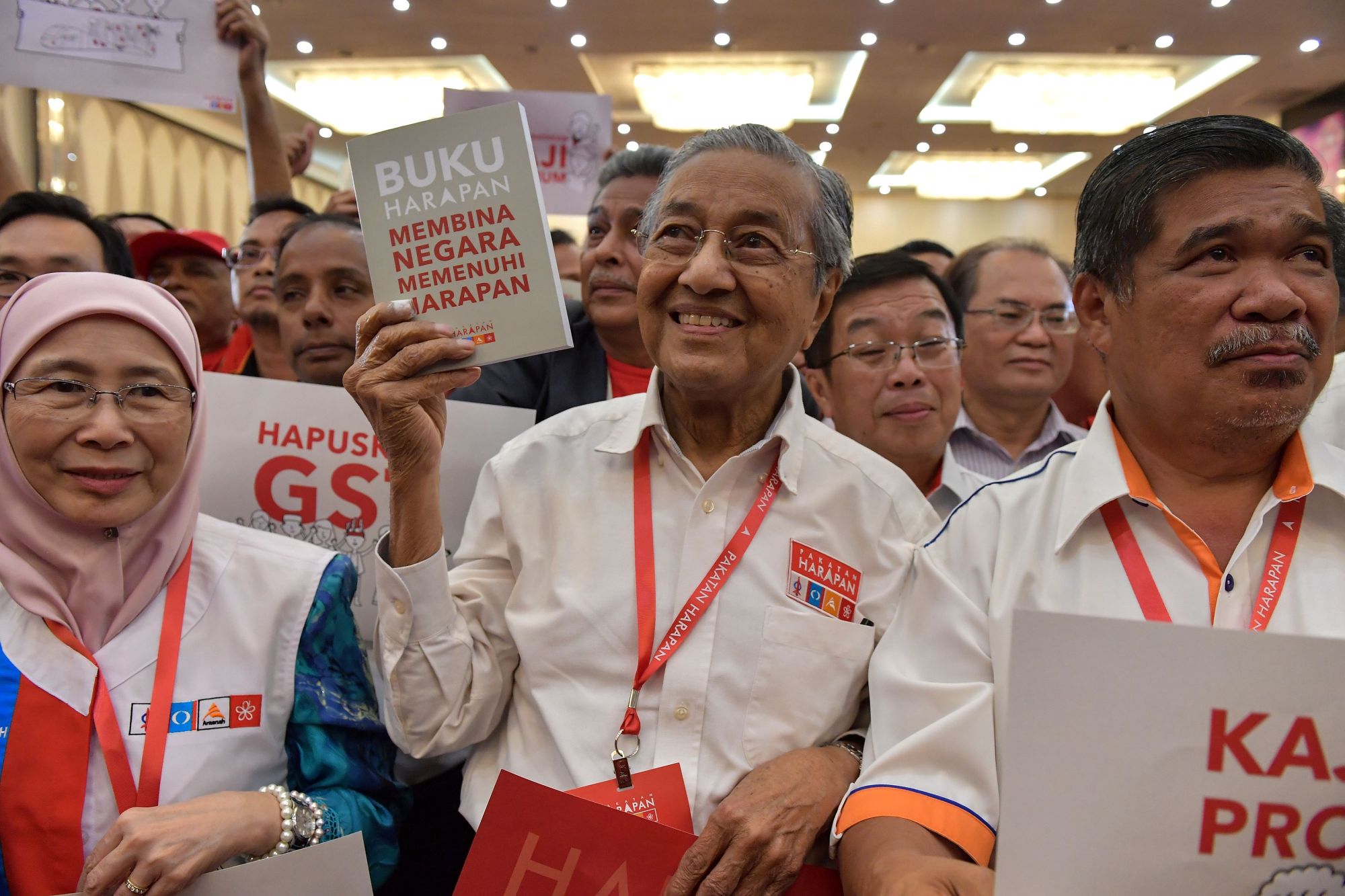Malaysia is just a few months or even weeks away from its most contentious election in decades. Mahathir Mohamad — Malaysia's longest-serving prime minister, whose rule ended in 2003 — is, at 92, working with opposition figures he once repressed to prevent his former protege, the controversial Prime Minister Najib Razak, from securing another term. But breaking the 61-year winning streak of Mahathir's former party, the United Malays National Organization (UMNO), will not be easy.
In fact, the pundits are still betting on Najib, with one pollster predicting that the incumbent could regain a two-thirds parliamentary majority, enabling him to amend the constitution. Mahathir has just a few months to change the political dynamic, by leading the opposition coalition, Pakatan Harapan (PH), and replacing the Pan-Malaysia Islamic Party (PAS) with his new party, the Malaysia United Indigenous Party (PPBM), as the primary alternative to UMNO.
While the PAS has only about 15 percent electoral support, it has managed to push the UMNO to implement elements of its nationalist-religious agenda. A strong enough showing by PH in the next election, however, would expose the PAS as politically dispensable, potentially freeing Malaysia from a toxic game of Islamist one-upmanship.



